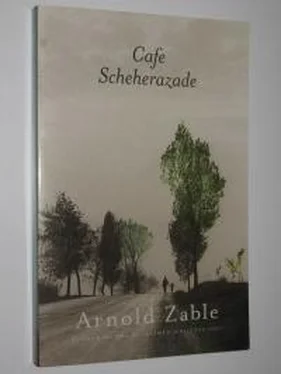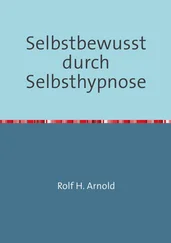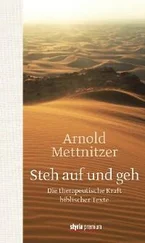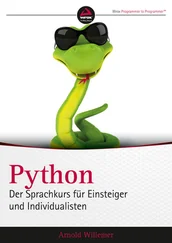Arnold Zable - Cafe Scheherazade
Здесь есть возможность читать онлайн «Arnold Zable - Cafe Scheherazade» весь текст электронной книги совершенно бесплатно (целиком полную версию без сокращений). В некоторых случаях можно слушать аудио, скачать через торрент в формате fb2 и присутствует краткое содержание. Город: Melbourne, Год выпуска: 2001, Издательство: Text Publishing Company, Жанр: Проза, на английском языке. Описание произведения, (предисловие) а так же отзывы посетителей доступны на портале библиотеки ЛибКат.
- Название:Cafe Scheherazade
- Автор:
- Издательство:Text Publishing Company
- Жанр:
- Год:2001
- Город:Melbourne
- ISBN:нет данных
- Рейтинг книги:4 / 5. Голосов: 1
-
Избранное:Добавить в избранное
- Отзывы:
-
Ваша оценка:
- 80
- 1
- 2
- 3
- 4
- 5
Cafe Scheherazade: краткое содержание, описание и аннотация
Предлагаем к чтению аннотацию, описание, краткое содержание или предисловие (зависит от того, что написал сам автор книги «Cafe Scheherazade»). Если вы не нашли необходимую информацию о книге — напишите в комментариях, мы постараемся отыскать её.
Cafe Scheherazade — читать онлайн бесплатно полную книгу (весь текст) целиком
Ниже представлен текст книги, разбитый по страницам. Система сохранения места последней прочитанной страницы, позволяет с удобством читать онлайн бесплатно книгу «Cafe Scheherazade», без необходимости каждый раз заново искать на чём Вы остановились. Поставьте закладку, и сможете в любой момент перейти на страницу, на которой закончили чтение.
Интервал:
Закладка:
At least, this is what Avram claims. It is a family legend which he loves to recount, one of the many anecdotes which inflate his pride.
"You see? My family is part of history!" he exclaims. "You see? My mother was a rebel, a daring fighter, a woman of the world!"
Another night has flown. The neon sign over the entrance blinks Scheherazade in rounds of lilac, blue and rose. Proprietors are drawing the shutters over their stores. The last customers are stumbling out through Scheherazade's doors.
"Martin, I warned you," says Masha. "This is a story without end."
But by now I am entranced. I may have been drawn here as a journalist in search of an intriguing tale, but this is far greater than a column, a life story at a glance. There are moments when I no longer know where I am. Time extends beyond time and I return the next night as if lured by a recurring dream.
Scheherazade is crowded with theatregoers and lonely men sipping tea. Two powdered streetwalkers eat toasted cheese on rye. A medical student reads _Gray's _Anatomy over a bowl of chicken soup. Waitresses run from the kitchen balancing trays laden with steaming meals.
So take your time. Sit down at our table. Break bread. Share our bottle of red. Observe the white-haired storyteller Avram, his hands in motion, his voice straining to maintain its vigour, his ample eyebrows darting up and down as he proclaims that the century truly began in 1905, with frenzied young men and women careering through the streets of Tsarist Russia screaming:
"__Daloi Nikolai! Daloi _Nikolai! Down with Tsar Nicholas! Down with Tsar Nicholas!"
Avram is precise in his knowledge of historical details and dates, but whenever I am in doubt I retreat to libraries to fill in the gaps. I have been drawn into the hunt. I am engaged in reconstructing other times, other worlds.
On 9 January, in an incident that was to become known as Bloody Sunday, a procession of workers converged upon the winter palace in St Petersburg. They marched, two hundred thousand strong, bearing icons and portraits of the Tsar. They trudged through the snow, in search of an audience with their Batyushka, their revered Father, the emperor of all the Russias. They surged into the palace square, unarmed, singing anthems, led by a rebellious priest.
A cordon of troops barred their way. Horses strained at the bit.
A sudden hail of bullets rent the crisp winter air. In their thousands the marchers ran, from the frenzied charge of cavalry.
In panic they fled, from the batons and bayonets of militiamen.
In their hundreds they fell, under the hooves of crazed horses, in a tangle of chaos and fear. The bloodstained corpses of men, women and children lay in the snow. Bullet-riddled images of the Tsar were scattered over the square. The social fabric was in tatters, countless lives torn to shreds. And never again would those who marched trust their Batyushka.
The spirit of rebellion spread. A year of revolution engulfed the land. In February, Grand Duke Sergei, the Tsar's Moscow envoy, was assassinated in his carriage, as he drove through the Kremlin gates. Peasants turned on their masters and seized their estates.
Industrial workers closed down factories and surged out on a general strike. Soldiers mutinied in Vladivostok and Tashkent. And in June, whilst on manoeuvres in the Black Sea, the crew of the battleship Potemkin turned upon their officers.
The admiral in charge of the ship ordered the rebels to be shot.
The firing squad refused to obey. The crew seized the squad's weapons, rushed their officers, threw some overboard, and locked the remainder in their cells. The Potemkin sailed into Odessa harbour flying the red flag. And on the morrow, Etta Stock, now a trained nurse, was sent on board to tend the crew, while rioting workers fought street battles, and the city was engulfed in flames.
"Now you understand?" exclaims a triumphant Avram. "My mother was a legend! A maker of history! A revolutionary! As too was my father Yankel, the son of Alter Zeleznikow the lumberjack."
Avram speaks with obvious pride. The son recalls the father, who begets the grandfather, and Alter Zelenikow is reborn.
In the early years of this century, Alter would stand astride a flotilla of logs, which he guided along the River Pina from the city of Pinsk to the confluence of the River Dnieper. Hundreds of kilometres south he floated, upon the Dnieper's fast-flowing currents. On the banks hovered cathedrals with onion-shaped domes. In nearby fields huddled villages graced with thatchroofed homes. In the distance loomed solitary farmhouses hewn out of stone, as the flotilla drifted downstream towards the Black Sea coast.
"Avramel," interjects Masha. "You are straying again. We will never reach the end of it!"
Masha moves from language to language with ease. She speaks Yiddish to Avram, addresses the waiters in Polish, consults the cafe-manager in Russian, greets her new guests in English, and converses with her friends in a fluid mixture of all four. As for the cabbage soup steaming in front of me, it is based on a recipe Masha gleaned from her mother.
"In Poland I would never have believed that one day I would be recreating my mother's dishes in a restaurant called Scheherazade," she muses. "I never imagined that one day I would cook for a living. Or that I would become a restaurateur. I always thought I would be a doctor. A professional. I studied medicine for three years. I studied medicine until the day I was forced to flee."
Avram ignores Masha's comments. His mind is fixed upon the distant past like a man obsessed. He takes up the narrative where he left off, in 1905, the year of the first revolution, the year in which fifteen-year-old Yankel, Alter the lumberjack's son, was drawn into the secret cells of the Bund in Pinsk.
Yankel joined his elder brother, Shlomo, the commander of a band of vigilantes whose task it was to defend the Jewish quarters from anti-Semitic attacks. The year of rebellion was drawing to an end. The revolutionaries were a spent force. Tsarist troops crushed the lingering resistance with ruthless ease. Jews were singled out as "enemies of Christ" and fomenters of civil unrest. Another wave of pogroms engulfed the townlets of White Russia and the Ukraine.
Uncle Shlomo fled for his life across a succession of borders to the port of Marseilles and, weeks later, sailed into New York harbour. He gazed with longing at the Statue of Liberty, stared in awe at the city's skyline, negotiated his way through the turnstiles of Ellis Island, and emerged into the crowded streets of the Lower East Side, where a job in a run-down sweatshop set him on the road to wealth and pride.
As for Yankel, he could flee only as far as the outskirts of Pinsk, where he took refuge in a hideout, a forest retreat. And waited, marking time, as he prepared for the next swelling of the revolutionary tide.
I glance round the cafe. A waitress tends the late-night guests.
She is middle-aged, dressed in a black mini-skirt, black stockings, and a white blouse. Her perfume hovers in the air as she hurries by. A couple, bound within an aura of intimacy, gaze into each other's eyes. Several old men are ebbing towards sleep.
A young man sits alone, and reads __A Treatise on _Boredom. He bites into a slice of cheesecake, washes it down with coffee, and all the while he is engrossed in his treatise on boredom.
I glance back at the ever-present Masha. On the table stand our stale teas, and half-eaten pastries.
"It is a miracle how couples meet," Avram says, as if awakening from a trance. "We are the children of accidents. Of random encounters. Take Yankel and Etta. It is a marvel how they met."
Avram pours another glass of red. Pauses. And resumes his chronicle in 1908, the year in which Etta Stock journeyed on a mission, 250 kilometres north, from her native Tulchin to Berdichev: a city celebrated for its cantors and scribes, Hasidic dynasties and spiritual guides. A city where biblical Hebrew flowed from eighty prayer houses, the enduring language of a wandering tribe. A city where Yiddish coursed through the courtyards and market places, and emerged as the language of daily life. A city of trade workers and hired labour, where the Bund was able to regroup after the debacle of 1905.
Читать дальшеИнтервал:
Закладка:
Похожие книги на «Cafe Scheherazade»
Представляем Вашему вниманию похожие книги на «Cafe Scheherazade» списком для выбора. Мы отобрали схожую по названию и смыслу литературу в надежде предоставить читателям больше вариантов отыскать новые, интересные, ещё непрочитанные произведения.
Обсуждение, отзывы о книге «Cafe Scheherazade» и просто собственные мнения читателей. Оставьте ваши комментарии, напишите, что Вы думаете о произведении, его смысле или главных героях. Укажите что конкретно понравилось, а что нет, и почему Вы так считаете.












